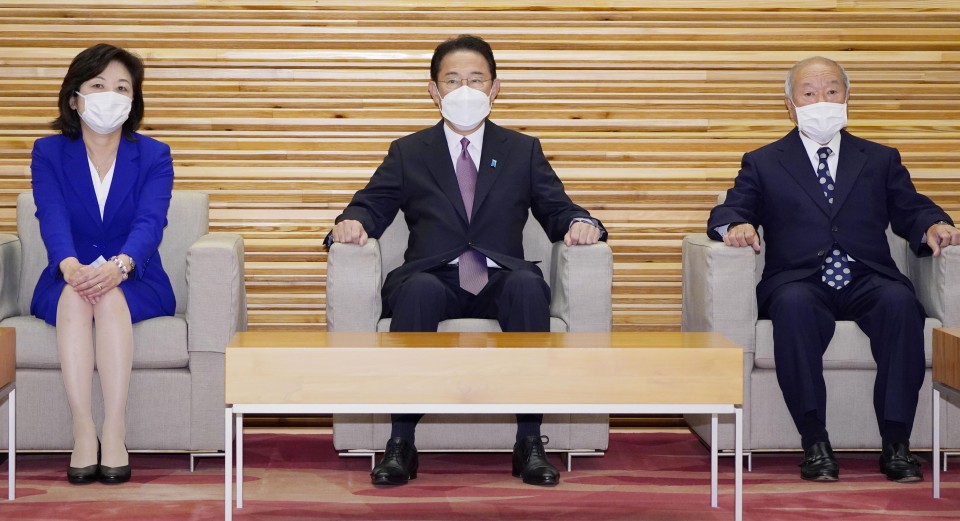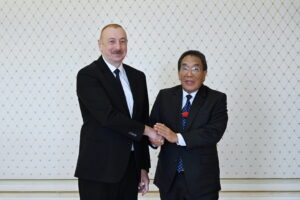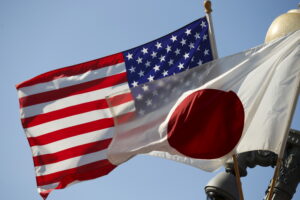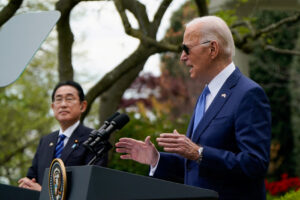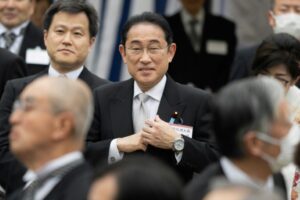Tokyo, 10 November, /AJMEDIA/
Japan’s parliament convened a special session Wednesday with Liberal Democratic Party President Fumio Kishida set to be re-elected as prime minister after his party secured a majority in the House of Representatives election on Oct. 31.
Prior to the three-day Diet session through Friday, his Cabinet resigned en masse as required by the Constitution. Kishida, who has served as premier for just over a month after taking office Oct. 4, will launch his second Cabinet in the afternoon.
“In a short period of time, the government has pushed forward policies with speed,” said Chief Cabinet Secretary Hirokazu Matsuno in reflecting on the past month.
The government set up a number of committees for realizing Kishida’s vision of a “new capitalism” that focuses on economic growth and redistribution of wealth, and he held phone talks with world leaders including U.S. President Joe Biden to realize a free and open Indo-Pacific region, Matsuno said at a press conference.
“The Kishida government’s basic stance is to listen carefully to the voices of the people and speedily carry out policies to address their worries about the coronavirus, hopes for economic recovery and sense of crisis about the increasingly severe international situation,” he added.
Kishida is expected to name as foreign minister Yoshimasa Hayashi, a former education minister who heads a nonpartisan lawmakers’ group that promotes Japan-China relations, while retaining most of the members of the current Cabinet launched last month.
Toshimitsu Motegi, who had held the foreign minister post since 2019, became the LDP’s secretary general earlier this month to replace Akira Amari, who was unexpectedly defeated in his single-seat district in the lower house election before securing a seat through the proportional representation system.
Kishida has since doubled as foreign minister.
The premier is also set to name former Defense Minister Gen Nakatani as his special adviser on human rights issues. Nakatani is a leading advocate of introducing sanctions on foreign government officials believed to be human rights offenders, similar to the U.S. Magnitsky Act.
On the same day, the powerful chamber elected Hiroyuki Hosoda, a former chief Cabinet secretary who heads the LDP’s largest faction, as its speaker and picked as vice speaker Banri Kaieda, a former industry minister and a member of the main opposition Constitutional Democratic Party of Japan.
With lower house members’ terms expiring Oct. 21, Kishida was forced to quickly call an election, going to the polls less than two weeks after taking office.
The outcome gave a boost to Kishida and his party toward delivering on their policies as the LDP secured a comfortable majority in the lower house together with its coalition ally Komeito, although Amari’s defeat in the single-seat district has cast a shadow over the party.
Following the special session, the LDP is seeking to convene an extraordinary Diet session to pass a supplementary budget for fiscal 2021 which includes stimulus measures to ease the impact of the novel coronavirus pandemic.
The extra budget, expected to be worth 30 trillion yen ($266 billion), will cover distribution of cash and vouchers each worth 50,000 yen to those aged 18 and younger as well as resumption of the government’s “Go To Travel” tourism promotion campaign that subsidizes a part of domestic travel spending.
Kishida also aims to realize a pay hike for care workers, nursery school staff and nurses.
On the diplomatic front, Kishida is seeking to visit the United States for a summit with Biden by the year-end after the two had a brief conversation at a U.N. climate summit in Glasgow, Scotland, earlier this month.
The LDP won 261 seats in the lower house in the latest election, 15 fewer than it previously held but enough to effectively control all standing committees and force through legislation if it desires. Komeito went from 29 to 32.
The CDPJ fell from 110 to 96 while one of the opposition groups it allied with, the Japanese Communist Party, dropped from 12 to 10 as voters apparently shunned their willingness to cooperate despite ideological differences.
On the last day of the special session Friday, CDPJ leader Yukio Edano is expected to step down over the election loss.

